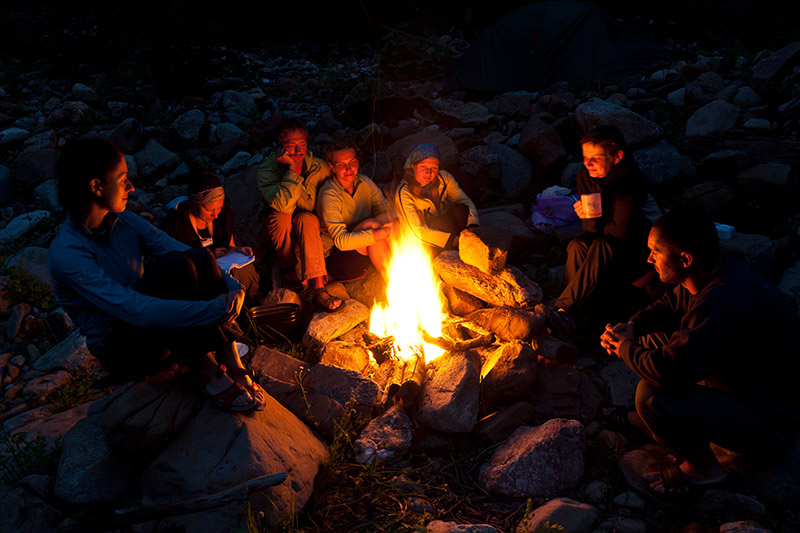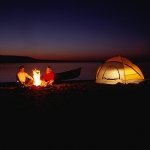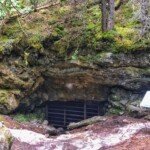A trip to one of the magnificent provincial or national parks in BC can provide the visitor with lifelong memories of a wonderful time spent exploring the best in outdoor adventure and exploration that the great Canadian province of British Columbia has to offer.
This outdoor or wilderness experience can be greatly enhanced by heeding the few simple and necessary rules implemented to ensure the safety and enjoyment of all who visit British Columbia’s fabulous parks.
Frequently Asked Questions – Recreation Information
How many vehicles are allowed per campsite?
BC Parks charges on a per-party basis. Due to wear and tear, maintenance and conservation factors within our parks, limits must be placed on the party size – the number of people and vehicles each campsite can accommodate. Each camping party is allowed:
- One vehicle and trailer (including towed vehicle). Either one (but not both) may be an RV.
- A second vehicle (non-RV) may be allowed on site for an additional nightly charge of 1/2 the campsite fee.
- Note: A towed vehicle is not considered a second vehicle.
Are generators allowed in provincial parks?
Generator use is permitted between the hours of 9am – 11am and from 6pm – 8pm. This policy was created to help reduce air pollution, greenhouse gas emissions, fuel consumption and noise levels. Get more information about this policy.
Does BC Parks have a policy on vehicle idling?
As of July 2010, BC Parks has implemented an Idle Free policy in provincial parks. This policy applies to vehicles and boats moored within the boundaries of a protected area. Get more information about this policy.
What is the maximum number of people allowed per campsite?
A maximum of eight persons including children (15 years of age and younger). At least one member of the party must be 16 years of age or older. BC Parks camping party definition states:
- One to four persons 16 years of age or older.
- A maximum of eight persons including children (15 years of age and younger).
What are the camping, parking and other user fees for provincial parks?
Click here for more information about the Provincial Park User Fees.
When are the gates closed?
Gates are opened at 7:00 am and closed at 11:00 p.m. Please respect other campers’ rights to enjoy a peaceful camping experience.
Are pets allowed in a Provincial Park?
Domestic pets are not permitted in all parks – please check specific parks for details. In those that allow them, domestic animals must be kept on a leash (no longer than 2 metres – about 6 1/2 feet) or in a vehicle, at all times. Domestic animals are NOT ALLOWED in beach areas or park buildings unless designated by sign. You are responsible for the behaviour of any domestic animal you bring into a park and must dispose of its excrement in a manner that does not inconvenience or annoy other park visitors.
Is the area patrolled by security or parks personnel to watch for noisy parties, vandals etc.?
In some parks, depending on the service level of the park, there is either a full-time security presence or a part-time security presence provided by the campground facility officer.
How long can I stay in a Provincial Park?
While there are a few exceptions, in most parks, there is a 14 days per calendar year maximum stay policy in effect. Haynes Point is 7 days due to the high demand, and a few parks have a long-stay policy in effect, please see the individual park pages for specific details.
What is winter camping and where is it available?
Certain parks within the park system offer year-round camping opportunities. Generally, the services provided during the off-season are minimal, and a camping fee may be charged, depending on the particular park.
How can I make a campground reservation?
To make a campground reservation online, contact Discover Camping or call the Discover Camping reservation service toll-free at 1-800-689-9025 (1-604-689-9025 in Greater Vancouver). A $5.00 surcharge applies for reservations made through the call centre. More information on Provincial Park Campground Reservations and a list of parks that accept reservations.
What is the maximum size vehicle or trailer that can use a campsite?
Based on the size of each campground, an interested party should contact the appropriate BC Parks District office or nearest Visitor Centre to verify if the specific campsite they are visiting can accommodate their large motorhomes or trailers. A vehicle or trailer must fit comfortably on the campsite without damaging the site or inconveniencing other campers. Parking is permitted only in designated areas and on the gravel portion of campsites. Parking is not permitted on roadsides.
Frequently Asked Questions – Conservation Information
Are firearms and hunting allowed in parks?
No person shall possess or discharge a firearm, bow or crossbow in a park or recreation area except during an open season as specified under the Wildlife Act or as authorized. Hunting is permitted in some parks where park management deems it to be appropriate. More Hunting and Trapping Information.
What kind of activities in BC Parks require a permit or permission?
For information on access, uses and/or commercial activities in parks, ecological reserves and protected areas that require an approved permit or permission, visit the page on BC Park Use Permits and Ecological Reserve Permits.
Can I pick mushrooms in a provincial park?
Mushroom picking is prohibited in Provincial Parks as per Sections 10(2) and 32(1) of the Park, Conservancy and Recreation Area Regulations.
Frequently Asked Questions – Other
What are the applicable camping ethics and regulations?
- Campfires may not be permitted in all parks. Some parks may use communal fire rings.
- Keep your campfire small – leaving your campfire unattended is a serious offense. To preserve vegetation and ground cover, please don’t gather firewood from the area around your campsite.
- Please help conserve firewood.
- Excessive noise is not permitted. Please remember that sound travels further in open areas, especially music and loud talking.
- Liquor consumption is prohibited anywhere in the park, with the exception of your campsite.
- Bicycles may only be ridden on park roads and on designated trails. Consult the park host, park brochure or information shelters for information about nearby cycling opportunities.
- Swimming areas protect swimmers within marker buoys; lifeguards are not in attendance. All watercraft and water-skiers must stay outside markers.
- Trees and shrubs are easily damaged – please do not use them for wiener sticks.
- Leave flowers and others plants to grow.
- Trails are planned to take you safely through the most interesting and beautiful parts of our parks without damaging sensitive and unique plant and wildlife habitats. Please stay on the trails.
- To avoid problems with bears, please lock your food in your vehicle at night. Be sure to use the garbage containers provided and maintain a clean campsite. Never feed or approach bears.
What should I know about border crossings into Canada?
See information on Border and Customs.
What regulations apply to Vehicles and Vehicle Towing?
See information on Driving in British Columbia.
Enjoy your visit, and remember that you must leave the park totally undamaged if future generations are to enjoy their visits to our parks.






